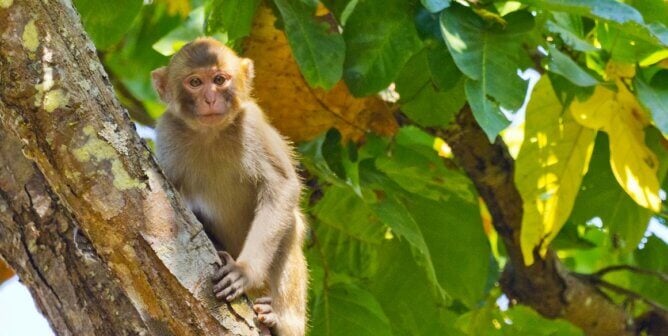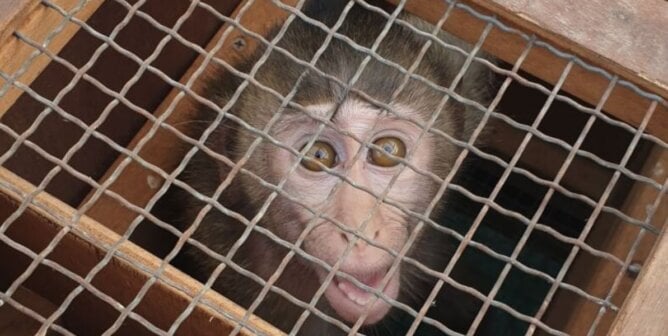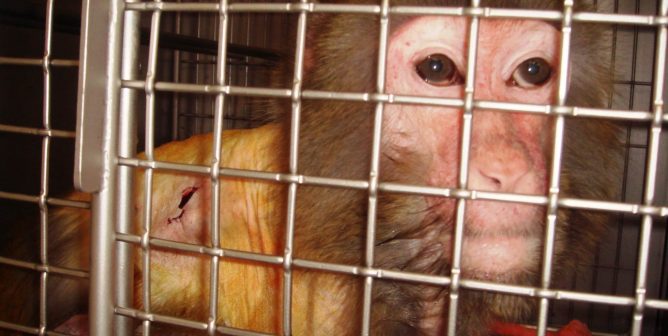Tulane National Primate Research Center at Tulane University
The Tulane National Primate Research Center (TNPRC) is one of seven so-called “flagship primate centers” established and funded by the National Institutes of Health (NIH) and one of the largest primate laboratories in the world. Located in Covington, Louisiana, the TNPRC is affiliated with Tulane University, which used 934 nonhuman primates in experiments in 2022. An additional 5,019 nonhuman primates were imprisoned at the facility for other purposes, including breeding. In fiscal year 2022, Tulane received nearly $130 million from NIH, including more than $10 million for the basic operations of the primate center.
Tulane operates a Biosafety Level 3 laboratory, where “agents that may cause serious or potentially lethal disease through the inhalation route of exposure” are studied. Experimenters at the university have infected monkeys with severe acute respiratory syndrome (or SARS), simian immunodeficiency virus (SIV), Zika, simian varicella virus, West Nile virus, and other pathogens. Several experiments being conducted at Tulane involve monkeys infected with SIV, supposedly to study HIV/AIDS. Multiple reviews have found that SIV studies have no relevance in helping us understand the pathology of HIV/AIDS in humans, as dozens of treatments and vaccines have been found effective to treat SIV in monkeys but have gone on to fail in human trials. Even so, Tulane continues to force monkeys to suffer.
Federal inspection reports reveal additional problems at the university. In one incident, a young male rhesus macaque monkey died after being forgotten for nearly 22 hours in a vehicle. Staff found him dehydrated and weak and tried to nurse him back to health. He did not recover and died. In 2015, investigators from the Centers for Disease Control and Prevention traveled to Tulane to investigate an egregious laboratory accident that “somehow exposed at least seven monkeys to a deadly bioterror bacteria.”
Recently, a rhesus macaque escaped from a cage, prompting a search “up and down the street on every corner” outside the facility as well as on the grounds—but this was not the first time that monkeys had escaped from the center. In 1998, 24 monkeys escaped, and in 2005, 47 more did so.
In 2007, the U.S. Department of Agriculture (USDA) fined Tulane $12,187 after 13 baboons died because of severe crowding in a chute while being transferred from one holding area to another. In 2005, the university was fined a paltry $685 when 50 pigtail macaque monkeys escaped from an enclosure. Four of them died or were never recovered. These fines pale in comparison to the many millions of dollars that Tulane continues to receive from the federal government in order to conduct cruel and deadly experiments on thousands of monkeys every year.
The university is currently under investigation by the USDA for additional violations.




